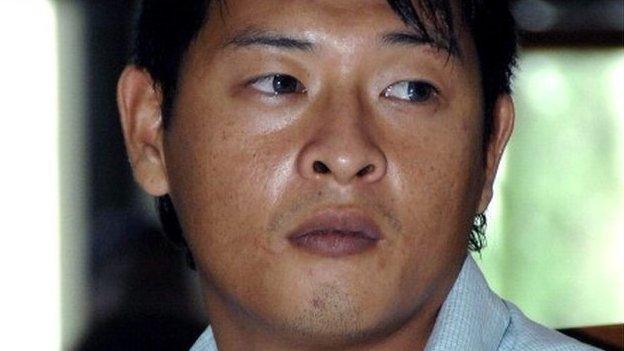Bali Nine ringleaders Andrew Chan and Myuran Sukumaran
- Published
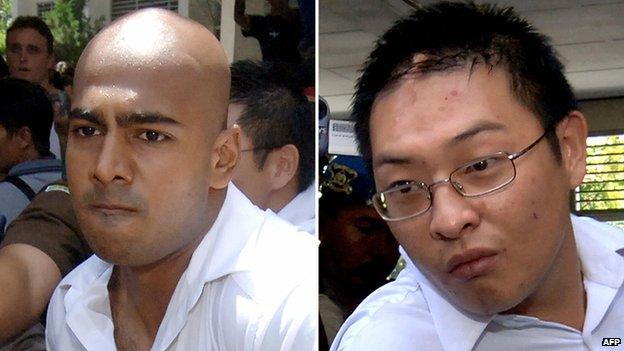
Myuran Sukumaran (L) and Andrew Chan (R) have changed in prison, their supporters say
Australians Andrew Chan and Myuran Sukumaran have been executed in Indonesia for drug-smuggling.
In 2006, a court found them to be the leaders of a group of nine Australians arrested in Bali with more than 18lb (8.3kg) of heroin.
Their families say they were rehabilitated while in prison, but Indonesian President Joko Widodo rejected their clemency pleas, saying there can be no compromise on the issue of death sentences for drug traffickers.
He has described the drug trade as a scourge that kills up to 50 Indonesians each day, though correspondents say the statistics he used have been called into question.
Indonesia's National Narcotics Agency puts the figure at 33 a day.
'No mitigating factors'
Chan and Sukumaran recruited seven Australians to travel to Bali in 2005 to bring heroin back to Australia. Balinese police swooped on the group after a tip-off from Australian police.
Four of the seven mules were arrested at Denpasar airport with heroin strapped to their bodies, while Sukumaran and three others were detained at a Kuta hotel in possession of heroin. Chan, arrested at the airport, was not carrying drugs.
Convicting them in February 2006, the court said the pair were guilty of "illegally exporting first-class narcotics in an organised way".
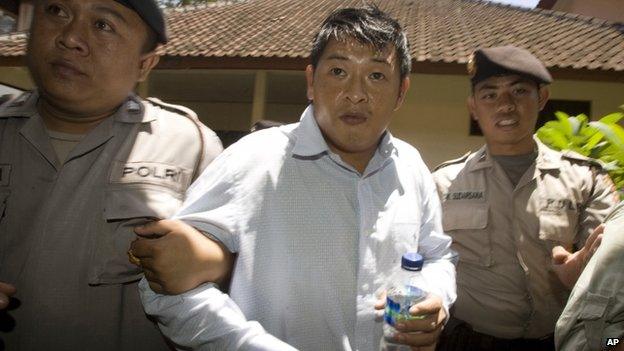
Andrew Chan, said the judge, did not take responsibility for his actions
It said Chan and Sukumaran had provided money, airline tickets and hotels to the seven mules.
"There are no mitigating factors. His statements throughout the trial were convoluted and he did not own up to his actions," Judge Arief Supratman said of Chan. Another judge, Gusti Lanang Dauh, said Sukumaran "showed no remorse".
'Hurt and pain'
Multiple advocates for the pair said they became very different in jail to the young men sentenced to death by the court.
Chan, 31, ran Bible study classes in Bali's Kerobokan jail, while Sukumaran, 33, became a keen artist.
The son of restaurant owners, and a former part-time cook, Chan also ran a cooking school in Kerobokan prison.
And he featured in a documentary seeking to educate secondary school students about the dangers of drug taking.
The film includes a six-page letter written by Chan entitled "Dear Me: The Dangers of Drugs".
In it he writes: "Dear Me, when you are older you will be in a Bali prison and you will be executed. This happened to you because you thought taking drugs was cool.... Your family and friends are heart broken... Underneath you are not a bad person."
He also addresses young people in the film.
"I have missed weddings, funerals, just the simple presence of my family. The hurt and pain that I don't just put onto myself, but my family, is agonising," he says.
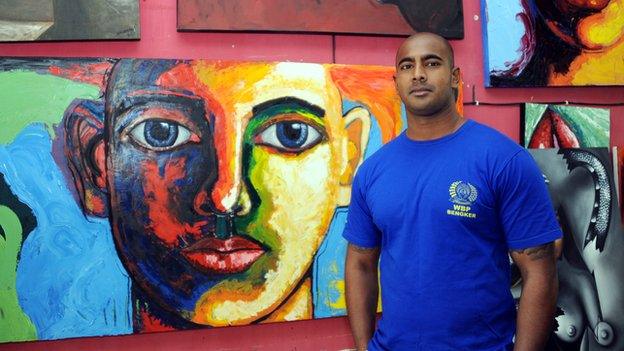
Sukumaran has become a keen painter
"My life is a perfect example of an absolute waste. That does not have to be [the case] for you."
The director of the film, Malinda Rutter, met Chan in prison and said he was a transformed man.
"He's funny, articulate, he is charismatic and has a very caring personality," Ms Rutter told News Limited.
She said that his unhappy childhood led him into criminal activity. "He was a really troubled kid and he wanted to be tougher and bigger than the other kids," she said.
Chan tells the documentary that he got involved in drugs "at a pretty young age" and that by the time he was 15 he was "merged into the scene".
Chan's final wish was granted by Indonesian authorities the day before he died when he married his Indonesian girlfriend at the prison.
'Shy man'
Sukumaran attended the same high school as Chan in south-west Sydney although the two men did not meet until years later.
Sukumaran's mother told News Limited that her son was also "rehabilitating" and had set up several courses in prison, including those in philosophy and art.
Painting "gives you a sense of control", the Sydney Morning Herald quoted him as saying.
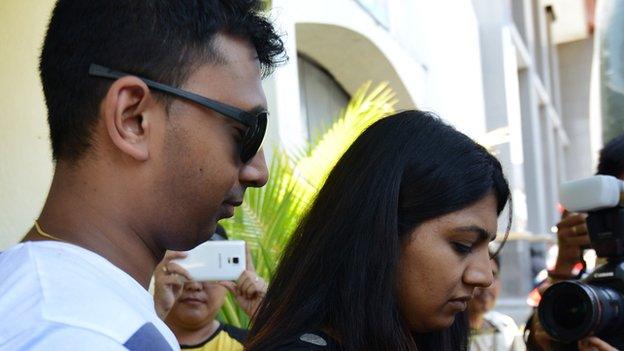
Families of the pair - including Sukumaran's siblings seen here - say they are not bad men
"Before I got arrested, I was never really good at anything. Zero skills or hobbies, no real direction in life," he said.
"When I do a good painting, it's like you see yourself improving, you can make something that's good."
Artist Ben Quilty, who has been mentoring Sukumaran, said he was surprised by his demeanour.
"He was not this dark character out of Batman but a young, shy Australian man," he told the paper.
One of his paintings is a portrait of Joko Widodo with the words "People can change" on the back.
During a court hearing in 2010 Sukumaran said he had changed.
"From the bottom of my heart I can honestly say I am now a different person and a reformed person," he said.
The Australia Broadcasting Corporation (ABC) reported that as his last request he had asked to be allowed to paint "for as long and as much as possible".
- Published17 February 2015
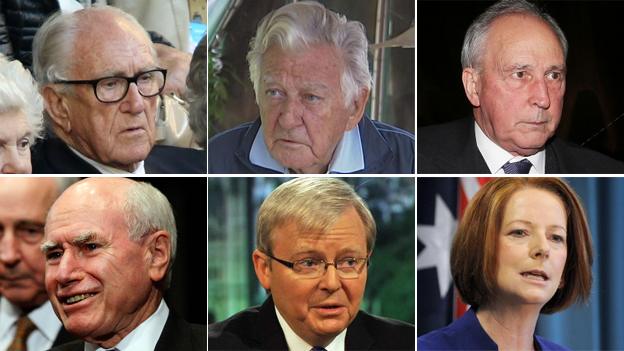
- Published27 January 2015
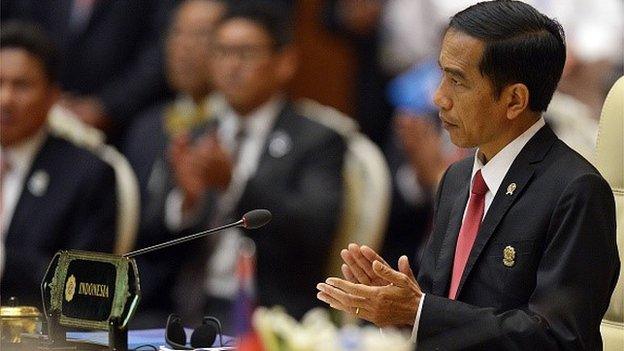
- Published19 January 2015
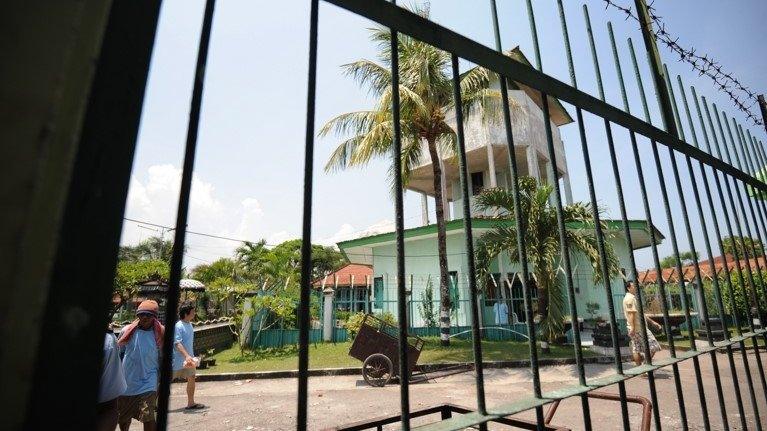
- Published22 January 2015
